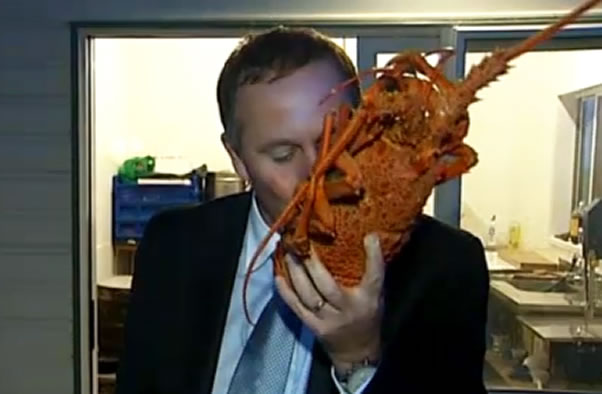One in three Kiwis fish in the ocean. Perhaps fearing a backlash at their decision to reduce the snapper quota in the Hauraki Gulf, Northland and Bay of Plenty, National have vowed to set up two recreational fishing parks in the Marlborough Sounds and Hauraki Gulf.
The announcement from the Nats comes out of the blue, and the lack of detail is surprising given they have been in Government for six years. However it seems like a positive step forward for recreational fishers and (hopefully) the environment. Yet there are some fish-hooks in it.
Haven’t we heard this before?
If you are getting that déjà vu feeling, there is a good reason. National made a similar pledge back in 2008. Six years on, with no progress made on this issue, they make this announcement as if it is new. Granted they have provided more detail than there was in 2008, but not enough for six years in charge. Some will justifiably feel a bit cynical about this announcement.
How much of a change is it?
This announcement sounds better than it actually is. Due to bans on certain types of fishing in the inner Hauraki Gulf, commercial fishing is already severely restricted. A total ban would not be a huge leap from where we are now. In the case of the Marlborough Sounds, crayfish, scallop and paua fisheries are excluded from the commercial ban. These are likely to be the main revenue generators in the Sounds, so would require the most compensation. National have focused on the low hanging fruit with this announcement.
Compensation for commercial operators
To National’s credit, they are acknowledging the commercial interests operating in these areas by offering to compensate them for the changes. This is the problem with recreational fishing groups that demand an increasing proportion of fish stocks be set aside for individuals. They aren’t accounting for the well-established rights of private operators. They can’t expect private property rights to be just usurped by government – all manner of litigation would ensue.
The most surprising thing about this proposal is that there is no mention of the cost of doing it. With all their focus on fiscal prudence and costing the campaign promises of their opponents, and given their six years in Government, one would have thought the National party would know how much this proposal would cost, and how they would pay for it.
Why should the taxpayer pay?
The question people should be asking, particularly the two-thirds of Kiwis that don’t fish, is why should the taxpayer pay for this policy? Recreational fishing is the one that benefits directly from this change, so why don’t they pay?
When they set up recreational fishing zones in Australia, the government lent recreational fishers the money to buy out commercial operators. Then the recreational fishers paid that money back over time through a license system. Now that license in Australia is being used to do all the things that recreational fishers want – like advocacy, science, building boat ramps and improving fish stocks. A license system is long overdue in New Zealand.
There are plenty of other ways to raise money to take care of the ocean. The Great Barrier Reef Marine Park includes charges for all commercial operators. At the moment shipping, aquaculture, tourism and fishing operators make no contribution to the public purse, despite the fact their income directly comes from operating in the ocean, which belongs to all of us. How about paying some rent?
What about the ocean environment?
This announcement includes a mention of a new Marine Protected Areas Act. This is long overdue and offers a few glimmers of hope for the ocean:
- fishing restricted to recreational within the Parks;
- creating different types of marine protected areas including no-take marine reserves, recreational fishing parks, species-specific sanctuaries, and seabed reserves;
- it would allow for marine protection in the EEZ – at the moment all marine reserves are within our 12 mile zone; and
- it would (apparently) improve the process for setting up marine reserves – this is currently a dogs breakfast, which is why we have so few marine reserves.
However, National has given no detail or commitment on the size and scope of the environmental side of their pledge. No-take marine reserves are the gold standard, and we need a representative network of reserves to truly protect our ocean environment. Our current network is pitiful. Even within the Hauraki Gulf and Marlborough Sounds we need to see more marine reserves. A dead fish is a dead fish, and we know that in the Hauraki Gulf recreational fishers can still do plenty of damage to fish stocks. So banning commercial fishers alone isn’t enough – we need to set some areas aside from all fishing. Like our parks on land, these are our insurance policy for the future.

